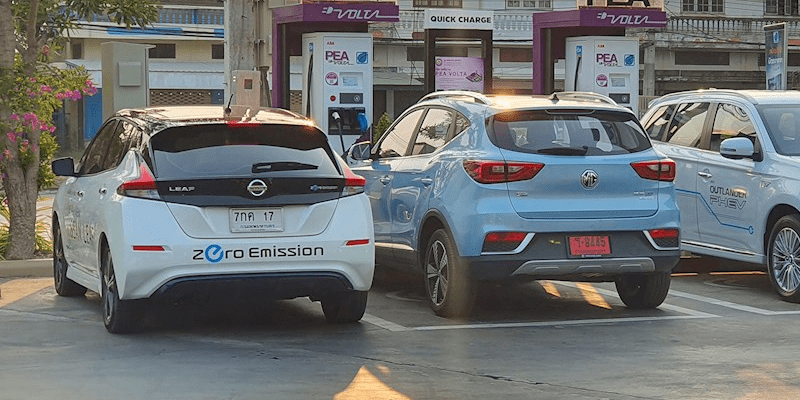Thailand continues EV subsidy package
The subsidy amount varies depending on the type of vehicle and battery capacity. For example, an electric car that costs less than two million baht (about 52,000 euros) and has a battery with a capacity of more than 50 kWh will be subsidised by 50,000 to 100,000 baht (1,300 to 2,600 euros). If the battery is smaller than 50 kWh, the subsidy is between 20,000 and 50,000 baht (520 to 1,300 euros). EVs costing less than seven million baht (approx. 183,000 euros) will also be subsidised by lowering the excise tax from eight to two per cent.
Electric motorbikes up to a price of 150,000 baht (about 3,900 euros) are subsidised by 5,000 to 10,000 baht, i.e. 130 to 260 euros – provided the battery is larger than three kilowatt hours.
In addition, import duties for fully assembled electric cars that cost less than two million baht (about 52,000 euros) will be reduced by up to 40 per cent in 2024 and 2025.
It is basically an extension of previous support measures, decided in spring 2022, to the period 2024 to 2027. Previously, import duties for EVs priced between two and seven million baht were also reduced to 20 per cent. The government no longer mentions the measure, so the import-duty reduction seems to apply to cheaper EVs only.
The Thai government is pursuing the “30@30” target, according to which at least 30 per cent of local production should be accounted for by zero-emission vehicles by 2030. Currently, Thailand builds 725,000 cars and 675,000 motorbikes per year. Thailand is geographically well-positioned to serve Asian markets, has nickel resources, and can process Indonesian nickel.





0 Comments